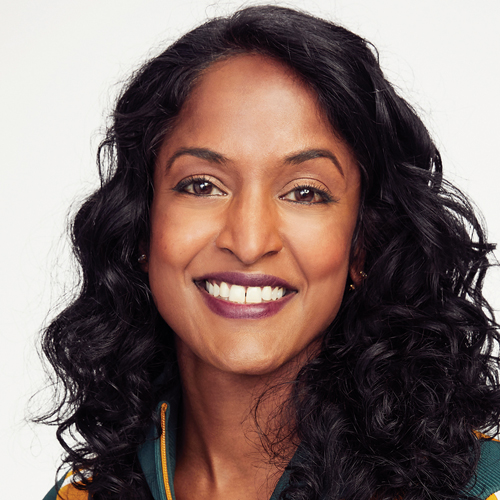
Narra has visited all but one continent, dipping into a variety of cultures unlike each other. That profound love of travel has given her a deep appreciation of our similarities and differences, and shaped her approach to advancing diversity in the company’s storytelling. She has designed programs and systems that support executives and producers at every stage of the creative development process. Over the last five years, she’s been focused on creating better entry-level positions in the entertainment industry through nonprofit Film2Future, of which she’s a founding board member. “By getting rid of the socioeconomic barriers to entry for underrepresented communities, I know we can create pathways for the storytellers of tomorrow as well as the creative teams who will bring those stories to life,” she says.
Do you think there has been significant progress on DEI in the industry in the past year?
Yes, there’s probably been more progress on DEI in the industry during the past year, or at least awareness of the progress made in the past year, than any year before. But it was also a year in which many, if not most, never stepped foot into an office. It was a year of moments, and we want to turn those moments into momentum. We want to create sustainable change for the next year – for the next decade – momentum that will power through pandemics, changes to work models and all the unforeseen moments we encounter in the future.
How have you been a champion of diversity, equity, and inclusion?
I have always been driven by the need to champion characters that you haven’t seen before, that are nuanced yet relatable. I am so proud to have been a part of the team that brought “The Mindy Project” to broadcast television at a time when there really wasn’t an unapologetically confident, funny, smart, messy female lead on television. And there definitely wasn’t one that looked like me or a lot of other people out there. Over the last five years, I have also been focused on creating better access to entry-level positions in the entertainment industry through a non-profit that I am also a founding board member, Film2Future. By getting rid of the socioeconomic barriers to entry for underrepresented communities, I know we can create pathways for the storytellers of tomorrow as well as the creative teams who will bring those stories to life.
What’s been the most dramatic change in your sector of the business today vs three years ago?
The most dramatic change in my sector of business today vs. three years ago is that we are now seeing an openness to using data and technology to uncover inequities and create solutions for lasting change and accountability.
My best advice for fostering open, honest communication…
My best advice for fostering open, honest communication is to listen without judgement, be genuinely curious, and fight the urge to make assumptions.
Which celebrity do you think is setting a strong example for the next generation?
Dolly Parton is setting a strong example for the next generation. Her dedication to helping others and willingness to use her influence for good in a way that transcends gender, race, religion and politics is not only an example for the next generation, but ours too.
Favorite current show that you feel embraces D&I?
There are too many shows to choose from, but I am just coming off of watching the finale of “The White Lotus,” and I think some of the most memorable moments Mike White wrote tackled different sides of privilege and class really well. He also took advantage of character development and setting to tackle the commercialization of indigenous people and land.